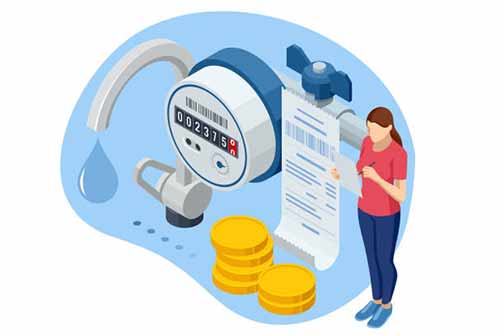
Easy access to safe water is one of the best things about living in a modern home. Unlike your great-grandparents – less than 150 years ago – you don’t have to wake up early to fetch water from a nearby well or spring and then lug it back home in heavy buckets.
By simply turning a faucet in your home, you get fresh clean water daily. But this convenience comes at a cost, says Stewart Management team. For every drop of water that enters your home from the city water supply, your wallet registers a transaction in the expense column.
That is a cost you cannot avoid because water is essential to so many things we do in our homes. We use water for cooking, cleaning, washing and watering our plants. So you cannot avoid water bills altogether, but there are several ways to lower your water bills.
You don’t need as much water as you consume in your home. Much of that water is wasted. Here are ten steps to help reduce water wastage in your home, lower your water bill, and become a better custodian of the natural environment.
10 tips and tricks to save water and lower your water bill
Saving water to lower your water bill does not mean giving up small everyday pleasures that help make life more meaningful. You can save water and still have fun. These tips will help you do just that.
Fix dripping faucets in your home
It is hard to overestimate the impact of one dripping on your water bill within a year. A faucet can waste up to 350 gallons of water a year, even if it is dripping at the slow rate of 10 drips per minute. Fixing a dripping faucet is cheap and easy.
Repair running toilets
Running toilets are an often ignored problem that can waste hundreds of gallons of water. One running toilet will waste as much as 300 gallons of water daily. Think of how much that will cost you in one year. Meanwhile, you can fix the problem for less than $50.
Hidden water leaks
Underground water leaks and other hidden leaks may wreak havoc on your home and finances. Hire a professional plumber to detect any leaks in your plumbing system. A tiny pipe leak can waste more than 10,000 gallons of water daily.
Broken water meter
The problem could be from your water meter, but you won’t know if you don’t check. To see if the water meter is broken, turn off the water supply at the main water shut-off valve. If the water meter is still reading, it could be broken, or you may have a leak in the main water line.
Invest in new faucets and appliances
Older faucets and appliances use more water than necessary. Newer models are more efficient; they let you perform the same tasks effectively without wasting water. Get a Water-Sense certified faucet, low-flow showerhead and water-efficient appliances, or install a more efficient aerator.
Load up your appliances
Only run your dishwasher and washing machine when they are fully loaded. Do not pre-rinse dishes, as this step only wastes water without adding to the outcome. Running a full load uses less water. To reduce water usage, you may also need to reduce the volume of detergent you use.
Collect rainwater
A lot of the water used in the home is consumed by the lawn and tasks like washing your car. But using rainwater for these activities is just as good as tap water. Collecting rainwater is not hard; you need to position a barrel underneath the downspout to capture roof runoff.
Reuse and recycle wastewater
Don’t throw away the water you use to rinse fruits and veggies. You can reuse the water left over after you steam your vegetables as a foundation for soups. You may also use the water to water your plants. But if you want to conserve water, you can catch and reuse water from the shower.
Select native plants
Choosing native or drought-resistant plants for your yard will reduce water consumption and help you cut the cost of fertilizers, herbicides and pesticides. Native plants don’t need much watering since they are adapted to the local weather conditions.
Lawn care
Small changes to how you care for your lawn can result in massive cuts to your water bill. Instead of sprinklers, you can use drip irrigation. If you let your grass grow longer, you won’t need to water the lawn as often. Watering the lawn before the day gets hot will reduce the evaporation rate.
And there you have it: ten simple tips and tricks to save water and cut your water bill without sacrificing your happiness.

